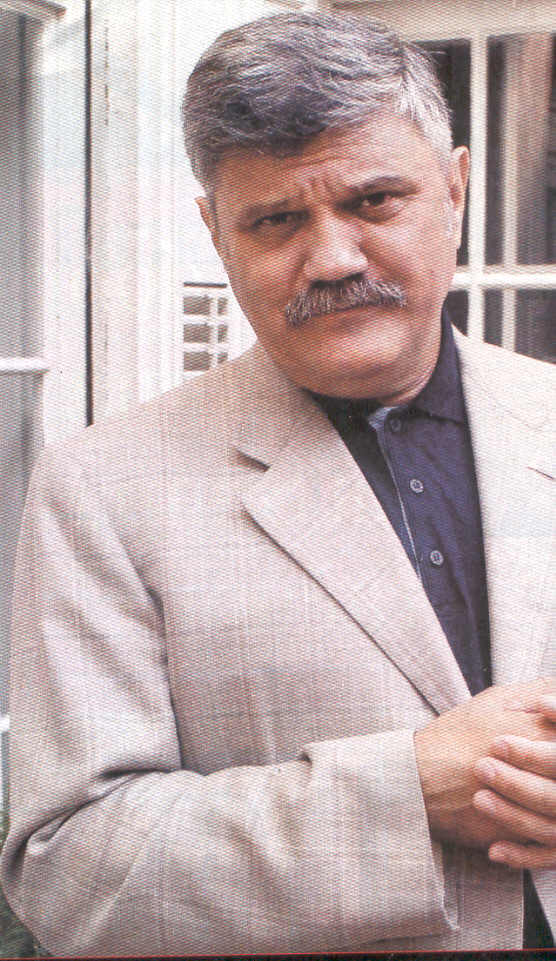Production of a New ‘Kosovo’ Myth
by Dušan Mihajlovic (former Serbian interior minister) - interviewed by Darko Hudelist
 You have recently told the Serbian media that Serbia’s relationship with its neighbours has never been so bad. What did you have in mind? You have recently told the Serbian media that Serbia’s relationship with its neighbours has never been so bad. What did you have in mind?
Serbia’s relationship with practically all its neighbours have soured under Koštunica. First, relations with Hungary soured due to attacks on the Hungarian minority in Vojvodina. Next, relations with Croatia and Bosnia-Herzegovina cooled too. These relations are now at a very low level: for example, parallels are being drawn between Operation Storm and Srebrenica. This is not good for the future of Serbia’s integration into the European Union. Serbia’s great problem lies in its overwhelming concern with the past. There is a growing revolt against the participation of Croatian and Slovenian firms in the privatisation of parts of the Serbian economy, while relations with Macedonia have dramatically worsened in connection with the church dispute. In regard to Macedonia we hear again the sounding of the same trumpets and drums as in 1990 and 1991. And Serbian-Montenegrin relations are constantly deteriorating.
It is my impression that Serbia is in the process of acquiring a new myth centred on the 1995 Operation Storm, which was followed by the exodus of around 200,000 Serbs - a myth that could end up by surpassing the Kosovo myth and become the basis for new conflicts in the future.
This is quite true. We see this happening in the Belgrade press. I read today, for example, an article saying that operations Storm and Flash were the two most tragic events in Serb history, comparable in their effects only with the exodus of Serbs from Kosovo in 1690. Some Serbian intellectuals are already working on the creation of this new myth. They write, for example, that the descendants of the emigrants from Kosovo lived to see 1912, when Kosovo once again became a Serb land. This message is that one must maintain faith, patience and energy until a new historical situation appears that would permit all this territory to become Serb again.
You were once involved in the trial of Legija and other members of the Zemun clan for the assassination of Zoran Đinđić. What kind of verdict can we expect?
I have no doubt that the prosecution will win the case and that Legija will be sentenced to forty years in prison. The government simply cannot afford anything else.
You have a pretty good idea where Legija was hiding all that time?
As a public official I cannot speak on this, but it is clear that Legija was not hiding in Serbia.
Čeda Jovanović has said that he was hiding in ‘Herzeg-Bosna’?
I believe this is true.
Jovanović himself is highly pessimistic regarding the outcome. He believes that Legija will disappear as soon as the sentence is pronounced.
It would not be difficult for Legija to escape from prison, but where would he go? In other words, who still needs him? Some argue that he could return to his old hiding place, but it is unlikely he would have returned to Serbia if he could have remained there. If he had not been refused hospitality, he would have remained there. In my view Legija has become too heavy a burden for everyone, including those who hid him, and his capacity for movement has been maximally reduced. One should bear in mind that the area where Legija hid is used also by Karadžić, Mladić and Gotovina, and that it is becoming ever smaller.
You also believe that justice will prevail and that Legija will indeed meet the punishment he deserves?
I am sure of this in regard to Legija. But I am concerned that only the direct executors and organisers of the crimes are being tried, while those who inspired, ordered and financed them remain at large. The exception is the murder of Ivan Stambolić: there the prosecutor was audacious enough to charge Slobodan Milošević as the one who gave the order.
Translated from a longer interview in Globus (Zagreb), 19 August 2005
|